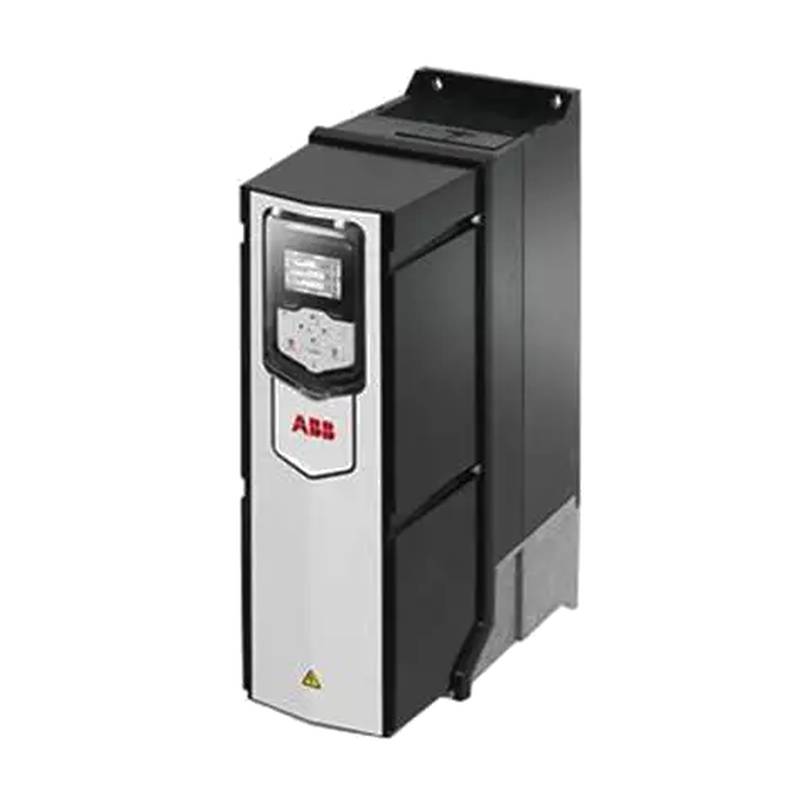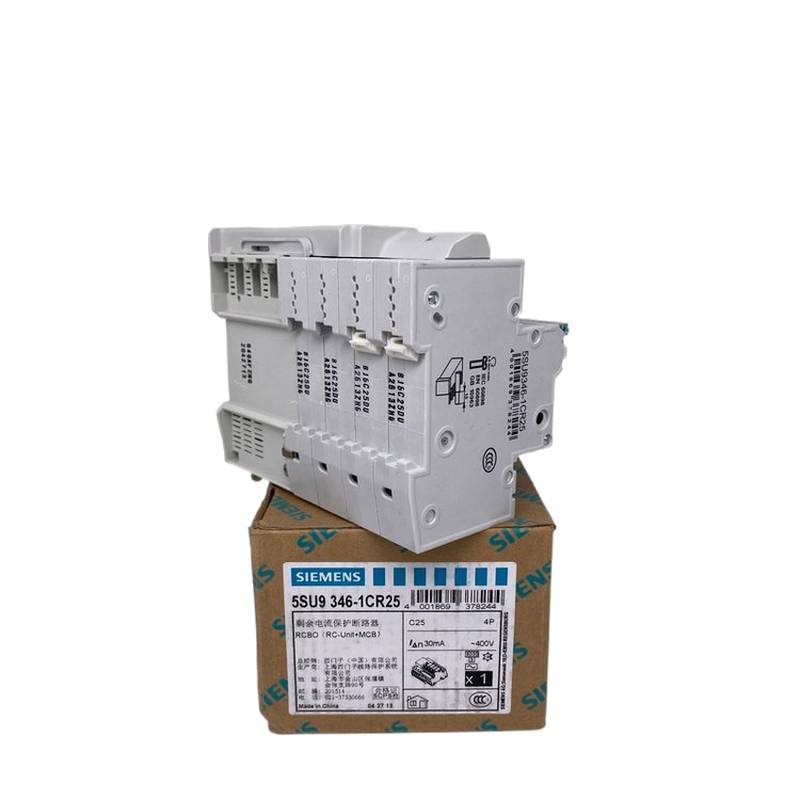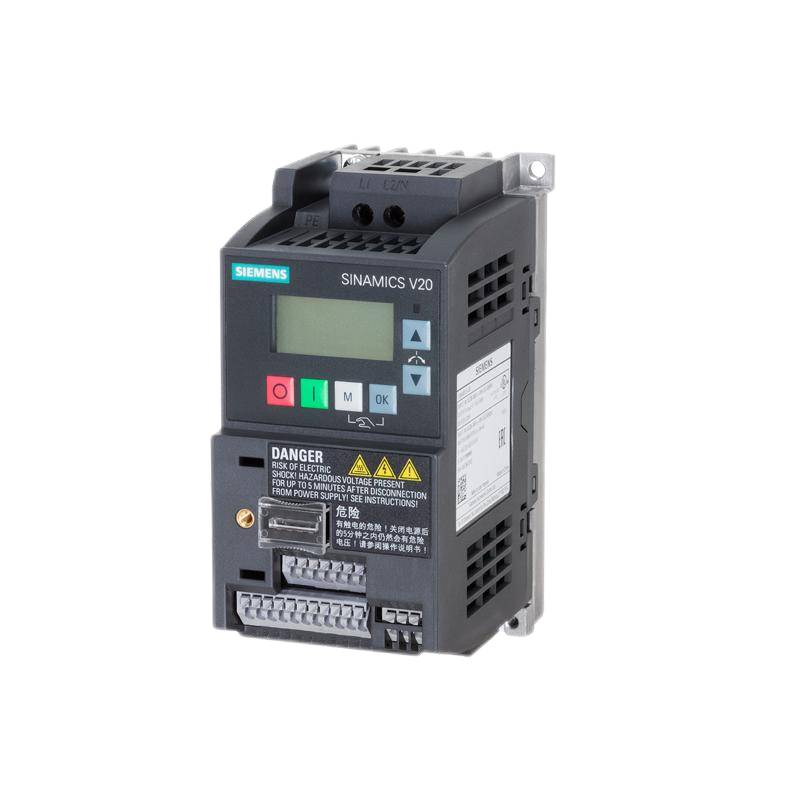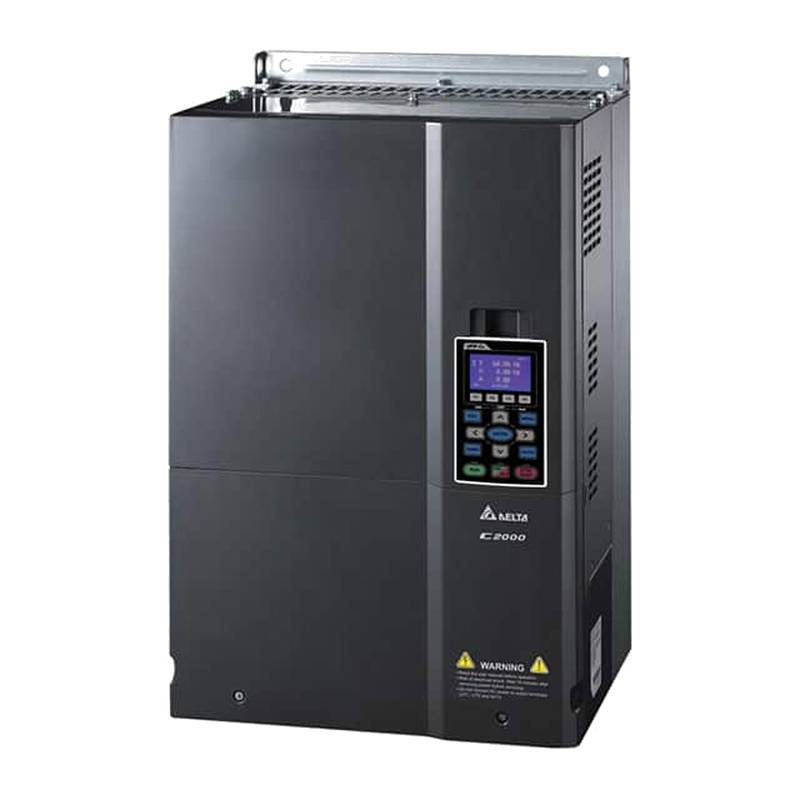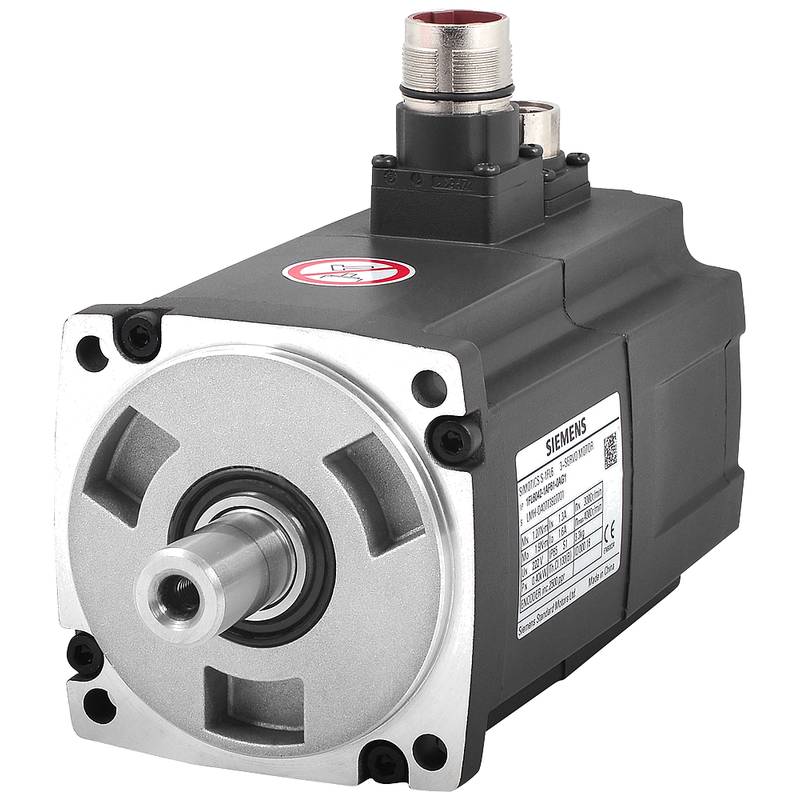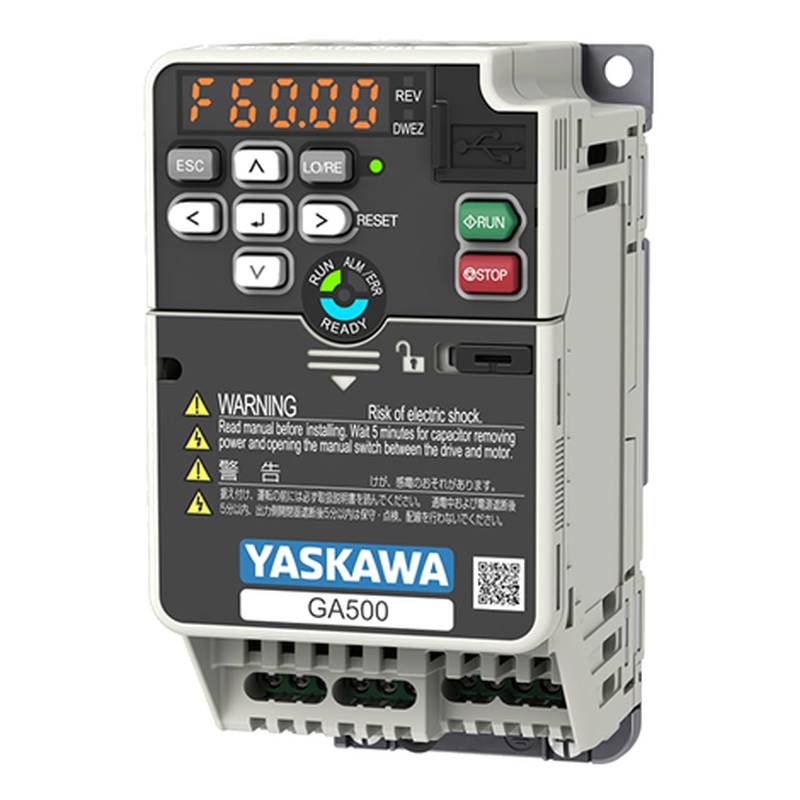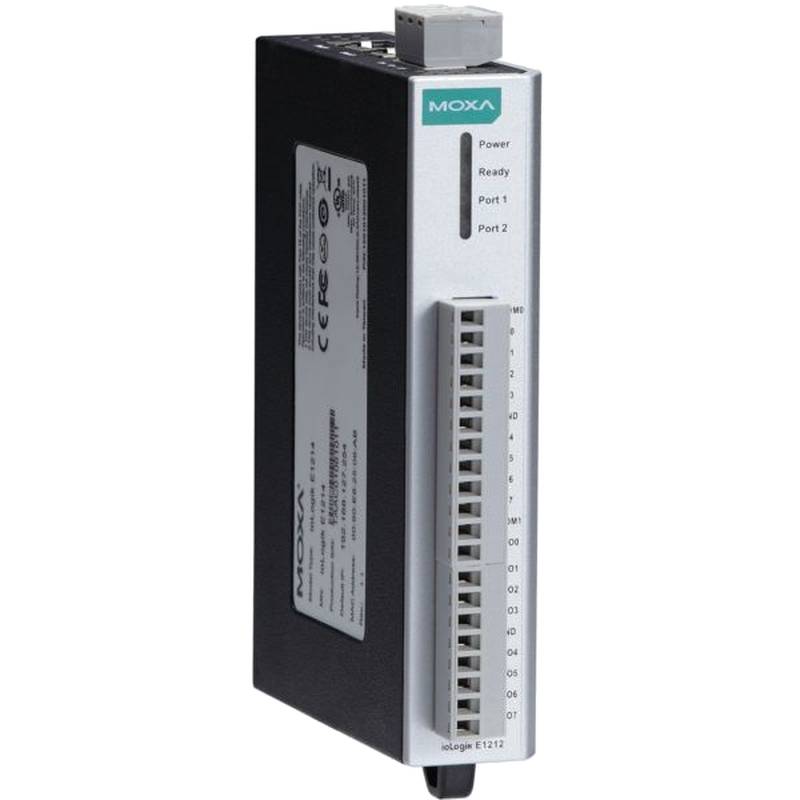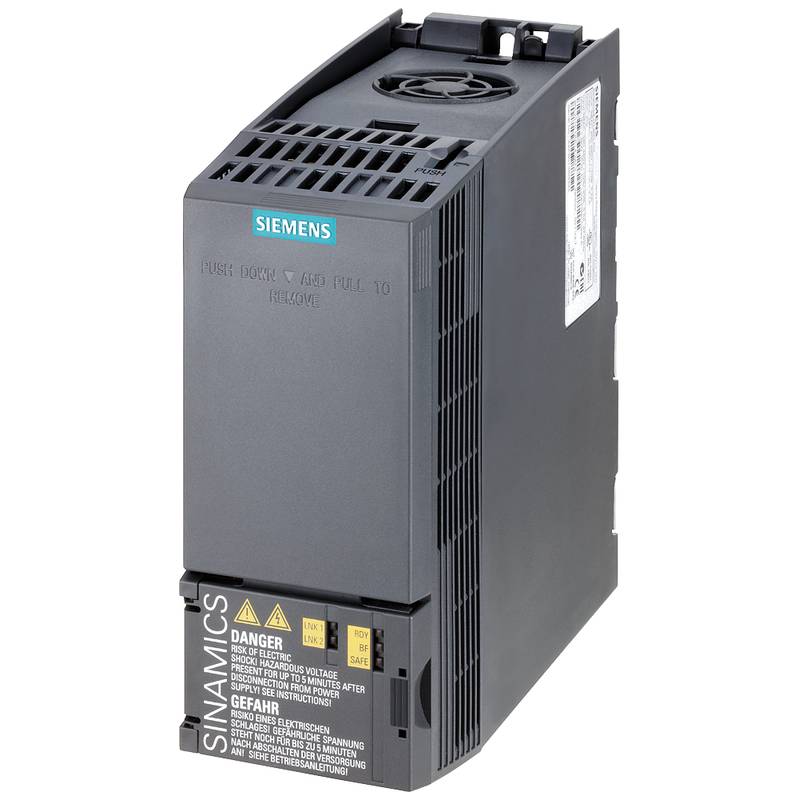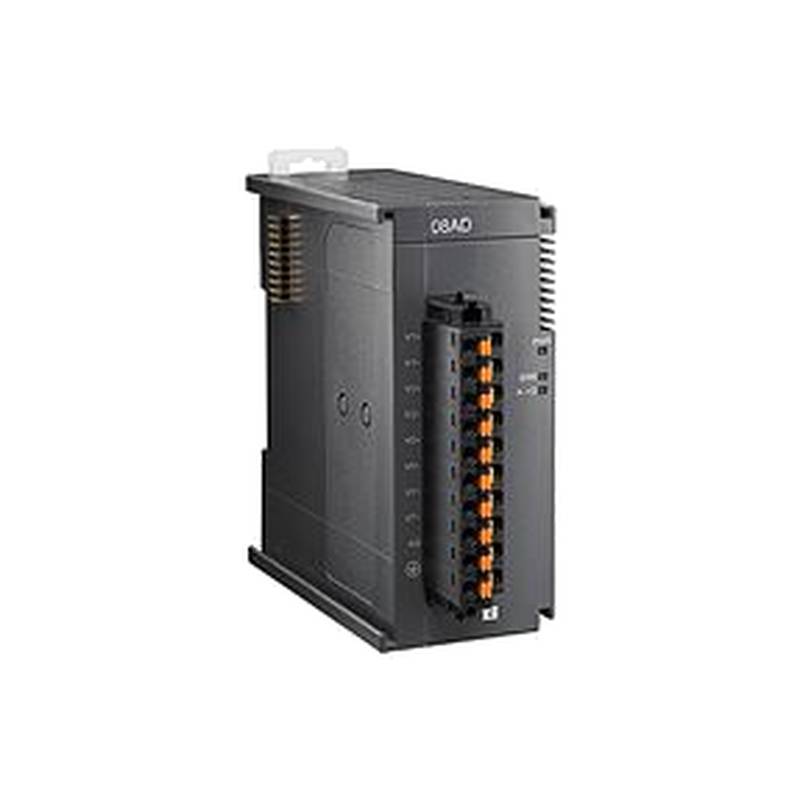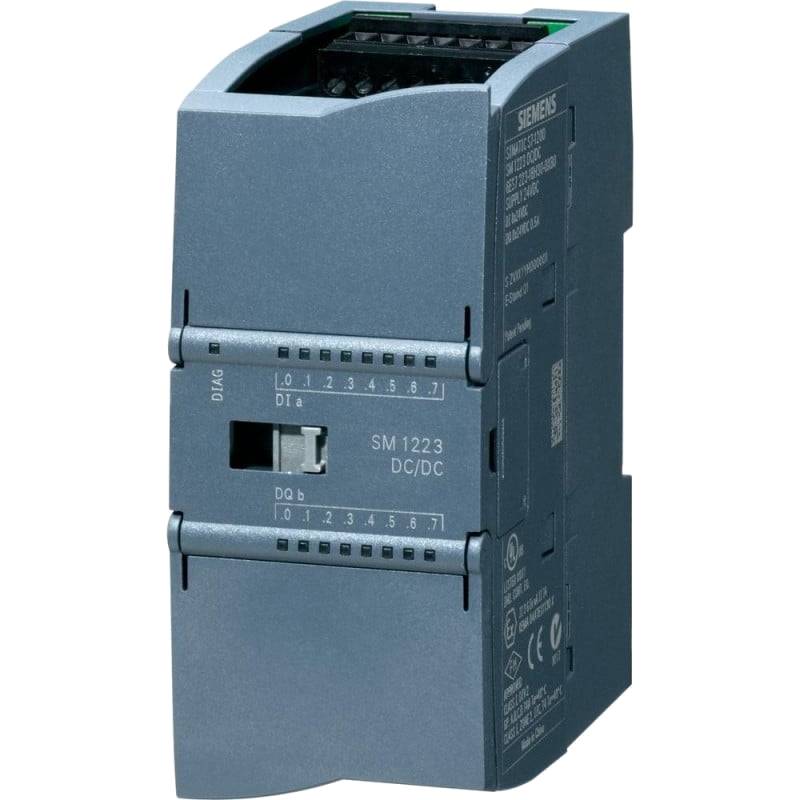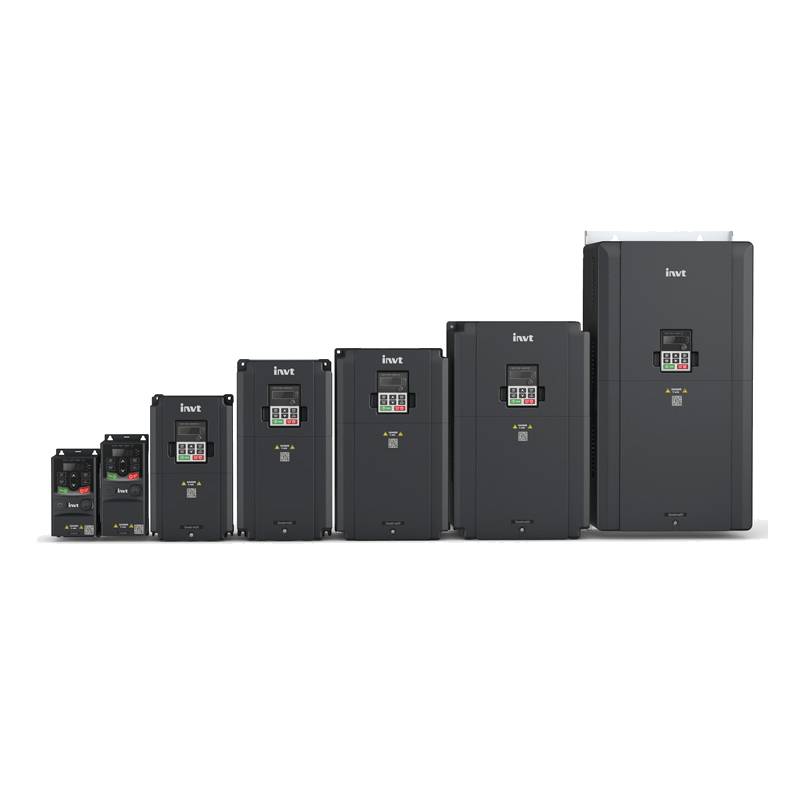
The ABB ACS880-01-206A-3 is an advanced Variable Frequency Drive (VFD) engineered for robust industrial applications, offering superior control and energy efficiency. This drive boasts a high power rating, suitable for demanding motor control tasks. Key advantages include its flexible architecture, advanced DTC (Direct Torque Control) technology for precise motor performance, and built-in safety functions. Essential technical parameters for the ACS880-01-206A-3 include a nominal current of 206A at the 400V level, a power rating of 110kW (150HP), and an IP21 enclosure for standard industrial environments, though higher IP ratings are available. It operates within a voltage range of 380-415V.
Product Specifications
| Parameter | Value |
| :----------------- | :----------------------------------- |
| Model | ACS880-01-206A-3 |
| Nominal Current | 206 A |
| Power Rating | 110 kW / 150 HP |
| Input Voltage | 380-415 V |
| Enclosure | IP21 |
| Control Method | Direct Torque Control (DTC) |
| Ambient Temperature| -20 °C to +50 °C (derating may apply) |
| Altitude | Up to 1000 m (derating may apply) |
Core Features & Market Positioning
The ABB ACS880-01-206A-3 distinguishes itself through its advanced Direct Torque Control (DTC) algorithm, which provides exceptional motor speed and torque accuracy without requiring a motor encoder. This capability is crucial for applications demanding precise process control and dynamic responses. Its modular design facilitates customization and simplifies maintenance, setting it apart in a competitive market where reliability and adaptability are paramount. The ACS880 series is recognized for its energy-saving potential, often outperforming older drive technologies and contributing to significant operational cost reductions for industrial users.
Key Application Scenarios
This VFD is exceptionally well-suited for a wide array of industrial processes where variable speed and precise torque control are essential. Common applications include pump and fan control in HVAC systems, conveyor systems in material handling, mixers and extruders in chemical and plastics manufacturing, and crushers and mills in mining and minerals processing. The drive's robustness and advanced control features ensure optimal performance and energy efficiency across these diverse sectors, addressing user needs for reliable and adaptable motor control solutions.
Practical System Integration Guidance
Integrating the ABB ACS880-01-206A-3 into existing industrial systems is streamlined by its common interface and communication protocols. For wiring, ensure proper grounding and use appropriately sized conductors according to the drive's power rating and local electrical codes. Motor connections should follow standard three-phase motor wiring practices. Commissioning typically involves parameter configuration via the drive's keypad or ABB's Drive composer software. Essential parameters include motor data (nominal power, voltage, current, speed, poles), ramp times, and I/O configurations for external control signals. Compatibility with various motor types, including induction and permanent magnet motors, is a key advantage.
Operation and Risk Mitigation
Safe operation of the ACS880-01-206A-3 mandates adherence to installation and operational guidelines. Users must ensure adequate ventilation to prevent overheating, as operating above specified ambient temperatures or altitudes may require derating. The drive incorporates numerous safety features, including safe torque-off (STO), which is crucial for emergency stops and maintenance procedures. Common fault codes, such as overcurrent (OC), overvoltage (OV), and overtemperature (OT), indicate potential issues that require immediate attention and troubleshooting based on the ABB manual to mitigate risks and ensure continuous operation.
Scalability & Long-Term Value
The ABB ACS880-01-206A-3 offers significant long-term value through its inherent scalability and integration capabilities. Its modular design allows for the addition of option modules, such as communication adapters for industrial Ethernet (e.g., EtherNet/IP, PROFINET) or extended I/O, enabling seamless integration into advanced automation architectures and the Industrial Internet of Things (IIoT). This adaptability ensures the drive remains a relevant component of evolving industrial networks and can be easily upgraded or reconfigured to meet changing production demands, thus maximizing return on investment.
Frequently Asked Questions
Q1: What are the main benefits of using the ABB ACS880-01-206A-3 VFD?
The ACS880-01-206A-3 offers superior motor control precision via Direct Torque Control. It significantly enhances energy efficiency, reducing operational costs. The drive's robust design ensures high reliability in demanding industrial environments.
This VFD provides flexible configuration options to adapt to various applications. Its advanced safety features, like safe torque-off, improve workplace safety. The modular construction simplifies maintenance and upgrades.
Its intelligent features, such as built-in application macros, speed up commissioning. The drive's compatibility with common industrial networks facilitates integration. It supports a wide range of motor types for versatile use.
Q2: How does Direct Torque Control (DTC) benefit the ACS880-01-206A-3?
DTC enables precise motor speed and torque regulation without an encoder. This accuracy is vital for critical process applications. It allows for dynamic response to changing load conditions.
With DTC, the ACS880-01-206A-3 achieves rapid acceleration and deceleration. It maintains excellent performance even with fluctuating power supplies. This leads to improved product quality and process consistency.
The absence of an encoder simplifies motor setup and reduces potential failure points. DTC also optimizes energy consumption by precisely matching motor output to demand. This enhances overall system efficiency.
Q3: What are the typical installation requirements for this VFD?
Ensure the VFD is installed in a clean, dry environment with adequate ventilation. Maintain clearances around the drive for heat dissipation and maintenance access. Avoid locations with excessive dust, corrosive fumes, or extreme temperatures.
Proper electrical installation is critical; use conductors rated for the drive's current and voltage. Ensure a robust grounding connection to both the drive and the motor. Follow local electrical codes and ABB's wiring diagrams meticulously.
Consider environmental factors like ambient temperature and altitude. Operation outside specified limits may require derating or additional cooling measures to prevent damage and ensure longevity.
Q4: Can the ACS880-01-206A-3 control different types of motors?
Yes, the ACS880-01-206A-3 is designed for broad motor compatibility. It efficiently controls standard three-phase induction motors. It also supports permanent magnet synchronous motors (PMSM).
The drive's advanced control algorithms adapt to the specific characteristics of various motor types. This ensures optimal performance and energy savings regardless of motor technology used. Parameter setup guides motor identification.
For optimal performance, ensure correct motor data is programmed into the VFD. This includes voltage, current, power, speed, and pole count. Proper configuration maximizes torque, efficiency, and drive lifespan.
Q5: What safety features are included in the ACS880-01-206A-3?
A key safety feature is Safe Torque Off (STO). This function prevents the motor from unexpected starts during maintenance or emergencies. It's a crucial component for machine safety compliance.
The drive also incorporates protection against overloads, overvoltage, and undervoltage. It monitors motor temperature and drive internal temperature. These protections prevent damage and ensure operational safety.
Additional safety functions can be implemented through optional modules. These can include safe speed monitoring and controlled stops. Always refer to the safety manual for full details.
Q6: How can I integrate the ACS880-01-206A-3 with automation systems?
Integration is facilitated through its support for various industrial fieldbuses. Common options include EtherNet/IP, PROFINET, and Modbus TCP. This enables seamless communication with PLCs and SCADA systems.
Use ABB's dedicated drive composer software for easy parameterization and monitoring. This tool simplifies configuration and diagnostics. It allows for remote access and control of the VFD.
Install appropriate communication option modules to match your network requirements. Ensure network configuration and addressing are correctly set within the VFD parameters.
Q7: What are common troubleshooting steps for the ACS880-01-206A-3?
First, check the drive's display for active fault codes. Refer to the ACS880 fault code list in the manual for specific error meanings. Common issues include overcurrent, overvoltage, and motor overload.
Verify all power and motor connections are secure and correctly wired. Ensure the motor data parameters match the connected motor precisely. Incorrect parameters are a frequent source of problems.
Check environmental conditions like temperature and ventilation. Ensure the drive is not exceeding its operational limits. Clean any dust buildup from cooling vents.
Q8: What is the typical power range and voltage rating for this VFD?
The ACS880-01-206A-3 is rated for 110 kW (150 HP) motor output power. Its nominal current rating is 206 Amperes. This makes it suitable for medium to heavy-duty industrial applications.
The drive operates on a standard industrial input voltage range of 380-415 Volts. This voltage compatibility aligns with common power grids in many regions worldwide. Always verify your local supply voltage.
This specific model is part of the broader ACS880 series, offering a wide spectrum of power and voltage options. This ensures a suitable drive is available for nearly any industrial motor application.
Q9: What is the enclosure rating (IP rating) of the standard ACS880-01-206A-3?
The standard ABB ACS880-01-206A-3 comes with an IP21 enclosure rating. This provides basic protection against solid objects larger than 12.5mm and vertically falling water drops. It is suitable for clean, controlled industrial environments.
For applications exposed to harsher conditions, such as dust, moisture, or washdowns, higher IP-rated enclosures are available. These might include IP42, IP54, or even IP66 options, offering superior protection against environmental ingress.
It is essential to select the appropriate IP rating based on the specific installation location and potential environmental hazards. Consult ABB documentation for available enclosure options and their suitability for your application.
Q10: Does the ACS880-01-206A-3 support energy saving features?
Yes, the ACS880-01-206A-3 inherently offers significant energy savings. By precisely controlling motor speed, it reduces power consumption during partial load operation compared to fixed-speed drives. This is particularly effective for pumps and fans.
Advanced features like the energy optimizer function further enhance efficiency. This function adapts the V/f curve and flux levels to minimize motor losses under varying loads. The drive can also track and display energy savings achieved.
Its Direct Torque Control (DTC) technology contributes to efficiency by optimizing motor performance and reducing electrical losses. The ability to implement sleep functions during idle periods also conserves energy, maximizing cost reductions.














